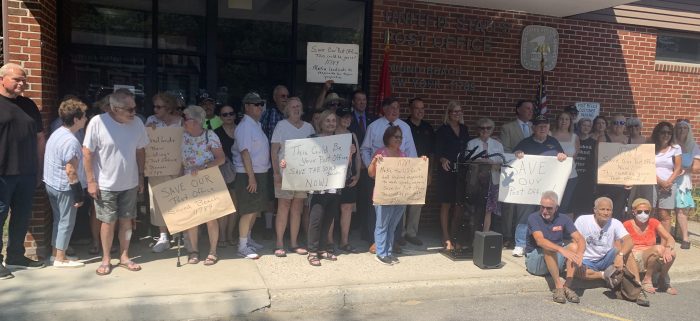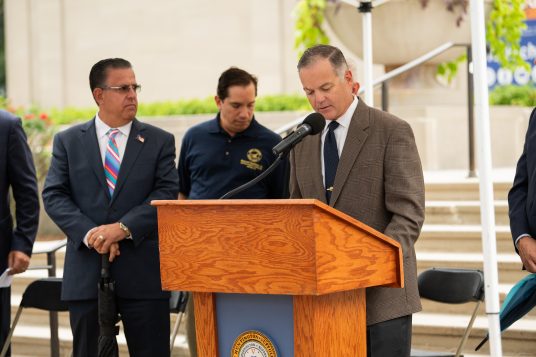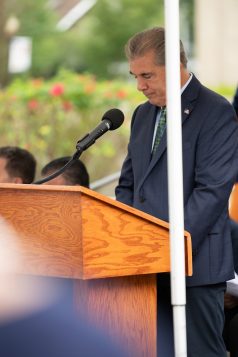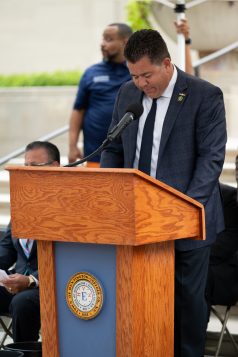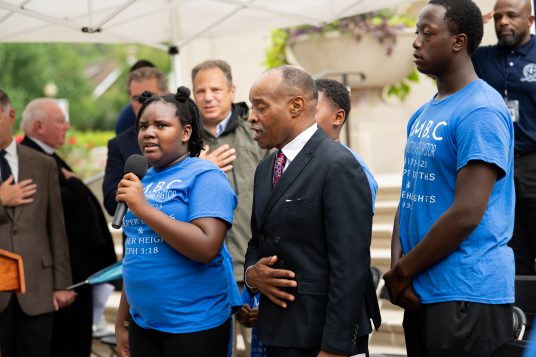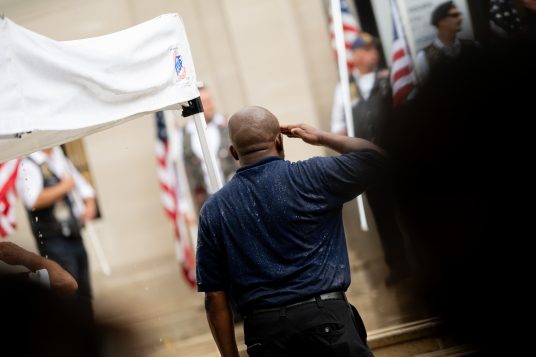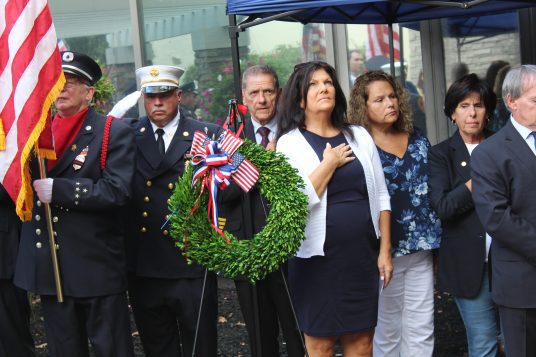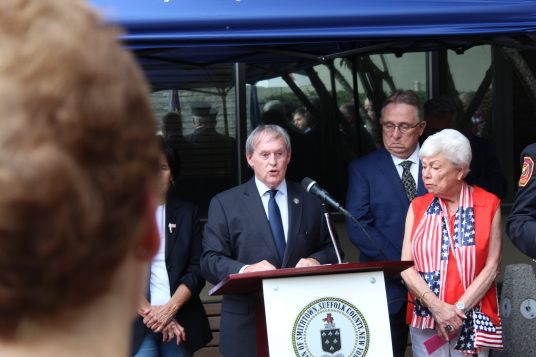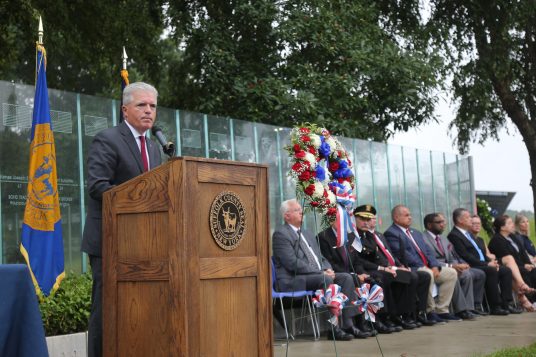By Samantha Rutt
As the local election season intensifies, Suffolk County’s wastewater infrastructure has now become the defining policy issue, with residents and environmentalists demanding immediate action to address what they consider an environmental crisis.
Water quality of Long Island’s coveted waterways is currently suffering as the county’s wastewater infrastructure deteriorates rapidly. Much of the system was built decades ago and has not been adequately upgraded to meet the demands of the growing population, critics say.
“Clean water is crucial to the health of our families, the lifeblood of our economy and central to our way of life,” said businessman Dave Calone, Democratic candidate for Suffolk County executive running against Town of Brookhaven Supervisor Ed Romaine (R). “Unfortunately, our water quality is at an all-time low, and we need to act now to protect it.”
Local officials, residents and environmentalists have voiced concerns over the issue. Adrienne Esposito, executive director of the Citizens Campaign for the Environment, said, “Suffolk County Legislators have an ethical and moral obligation to protect our drinking and coastal water resources.”
County Water Quality Restoration Act
The Suffolk County Water Quality Restoration Act, a plan to restore the county’s water quality, includes two bills that would create a fund to restore clean water by connecting homes and businesses to sewers and finance clean water septic system replacements.
“The need for an overall plan for wastewater infrastructure has been well-recognized for more than 60 years,” said Peter Scully, deputy county executive for administration.
Earlier this year, Scully had spearheaded a proposed 1/8 penny sales tax initiative to finance wastewater infrastructure. This proposal was rejected by the county Legislature in July, setting the stage for a contentious election season over this issue [See story, “Suffolk County Legislature recesses, blocks referendum on wastewater fund,” July 27, TBR News Media].
“Tragically, the Legislature doesn’t consider this a priority and has refused to let the public vote on this plan,” Esposito said. “Letting the public vote on a clean water referendum is good policy and good for democracy. It is deeply disturbing that the legislators support neither of those objectives.”
Impact on elections
The Republican vote to recess has met with fierce opposition from county Democrats, who are using the wastewater controversy to highlight differences in platforms.
“Republicans did not vote to put the referendum on the ballot,” said Keith Davies, Suffolk County Democratic Committee campaign manager. “It is clear that Republicans chose not to trust voters to make their own decisions. In our opinion, it was the wrong decision.”
Responding to these charges, county Legislator Stephanie Bontempi (R-Centerport), who is defending her 18th Legislative District seat against pediatrician Eve Meltzer-Krief (D-Centerport), indicated that her caucus is avoiding a rush to judgment.
“Rushing to pass legislation that is flawed and that will raise our taxes is simply irresponsible and not what our residents deserve,” Bontempi said. “Holding off with a referendum for a couple of months will certainly not lead to the end of Long Island, like some fearmongers like to claim.”
Many of the county’s wastewater treatment plants, pipelines and pumping stations are well past their intended lifespans, representing a growing risk for sewage leaks, overflows and contamination of local waterways and bays.
Meltzer-Krief warned that this could have devastating consequences for the region and its fragile ecosystems, including its renowned coastal areas and marine life.
“The quality of our waterways and bays here in Suffolk County is currently the poorest it has ever been,” she said. “The main cause is nitrogen runoff from outdated cesspools and septic systems which flows into our waters and triggers potentially toxic algal blooms which deprive marine life of the oxygen they need to survive.”
Research from the U.S. Environmental Protection Agency indicates that nitrogen from sewage is suffocating Long Island’s bays and harbors, contaminating drinking water and causing fish kills and algal blooms.
“Thankfully, scientists know how to reverse this troubling and urgent environmental concern and clean our waters,” Meltzer-Krief said.
But, she added, “It is the responsibility of our county legislators to follow the science and protect our children from the toxins in the water by securing funding for the recommended clean water infrastructure.”
While local officials and environmental organizations have been sounding the alarm for years over aging infrastructure, progress has been slow and funding for these projects has often fallen short of what is required.
Restoring clean, healthy water requires drastically reducing nitrogen pollution from its primary source — Suffolk County’s approximately 360,000 nitrogen-polluting cesspools and septic systems.
“Once the legislation has been amended to properly address our wastewater infrastructure, the voters will be able to decide,” Bontempi said. “The Republican majority at the Suffolk County Legislature wants clean water, too.”
Suffolk County elections will take place Tuesday, Nov. 7.






